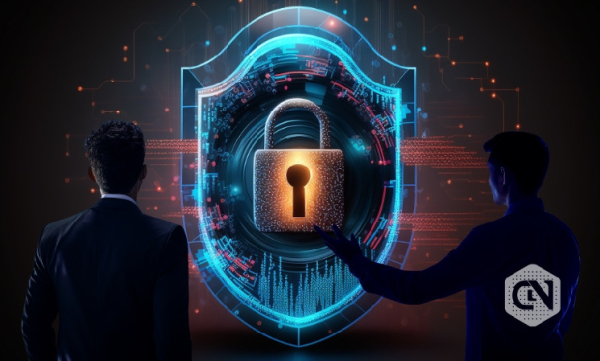River Guard’s strategy for Solana smart contract security

By automating vulnerability identification and mitigation, Neodyme’s River Guard protocol strengthens the security of smart contracts on Solana. Robust defense promised. Although Web3’s decentralized architecture offers many intriguing possibilities, there are also significant security issues to consider. These hazards include inadequate encryption, privacy issues, loss of private keys, hacking of smart contracts, phishing efforts, difficulties with scalability, and regulatory ambiguities. Safe methods like using secure wallets, cautious management of private keys, and continuous awareness of possible risks must be used to mitigate these issues. Neodyme’s River Guard protocol for the Solana environment is crucial to achieving this goal.
Web3 Security Challenges
Speaking at Breakpoint, Lambertz emphasized the difficulties in maintaining the security of smart contracts, acknowledging the difficulty in auditing and examining the code for every contract—especially considering the vast quantity of contracts on the Solana network. He mentioned that certain exploits are shockingly easy to use, requiring attackers to do little more than tweak the vulnerability to gain substantial profits. Using the network’s other users’ use patterns, the River component of the tool allows it to simulate user interactions with smart contracts. River Guard seeks to automatically identify vulnerable patterns and vulnerabilities by observing and modifying successful transactions.
General Security Practices
Implementing secure procedures in the Web3 environment is critical to protect people and assets in decentralized ecosystems. It’s essential to use secure wallets since they use encryption to safeguard digital assets. Managing private keys carefully is also very important since they provide access to one’s assets; users should not share them and utilize hardware wallets for more protection. In the ever-changing Web3, users must be aware of possible hazards so they may take proactive steps to reduce risks. Other suggested practices include:
- Testing smart contracts for weaknesses.
- Utilizing multi-factor authentication.
- Upgrading software regularly.
As the Web3 paradigm develops, putting cybersecurity measures first becomes essential for building trust, protecting against the expanding range of digital threats, and guaranteeing the integrity of decentralized systems.
Neodyme’s River Guard Protocol
River Guard is essential to enhancing Solana’s smart contract security, as Thomas Lambertz and Nico Grundel’s Breakpoint 2023 presentation demonstrated. The main goal was to strengthen the ecosystem through automated vulnerability discovery and remediation. River Guard’s focus on automation expedites the detection process, enabling the prompt identification of any dangers within smart contracts. In addition to speeding up the security procedure, this proactive strategy guarantees a stronger defense against changing cyber threats. The talk by Lambertz and Grundel at Breakpoint highlighted how critical automation is to bolstering Solana’s smart contracts and improving the overall security posture of the platform’s decentralized apps.
Neodyme Overview
Software development company Neodyme has a long history distinguished by its dedication to democratizing blockchain technology. Neodyme, which specializes in no-code solutions, wants to open up blockchain to all sectors of the economy. The company prioritizes security through thorough audits, research projects, and training programs. Neodyme aims to enable a wider audience to use blockchain’s potential, promoting efficiency and creativity by lowering technological obstacles. Neodyme is at the forefront of bridging the divide between existing sectors and the transformational potential of blockchain technology, emphasizing security and inclusion.
Smart Contract Security Challenges
By stressing the difficulty of auditing and examining many contracts, Thomas Lambertz draws attention to the challenges in securing smart contracts, especially on Solana. Complete security is difficult to achieve because of the vast amount of code. Lambertz also points out the unexpected phenomenon of very easy exploits producing substantial advantages, highlighting the need to find and fix vulnerabilities carefully. To reduce risks and shield users from potentially harmful exploits, his findings highlight how security threats in the blockchain environment are constantly changing. As such, a proactive and comprehensive review of smart contracts is necessary.
River Guard’s Approach and Technicalities
Through the simulation of user interactions with smart contracts, River Guard uses a systematic way to automate vulnerability discovery. Stealing user interactions and exploiting network use patterns, the River functionality is essential. A comprehensive study is ensured by the insights provided by Nico Grundel on transaction ingestion, mutation, and applied mutation rules. Using real-world examples, River Guard successfully discovered and fixed a Solana casino protocol vulnerability. Yet, River Guard’s function as a jumping-off point highlights the need for human knowledge and manual triage, particularly in complicated situations like Solana casinos, where teamwork and nuanced understanding guarantee strong security standards.
Impact of River Guard on Solana
The validation of 19 discoveries, which attests to River Guard’s strong vulnerability detection skills, highlights the program’s effectiveness. The swift and effective remediation of every issue indicates this technology’s beneficial effects on improving security in the Solana ecosystem. River Guard proves its efficiency in protecting smart contracts and strengthens the Solana blockchain’s overall security posture by promptly resolving and fixing the flaws. This certification gives users and developers more trust by demonstrating the tool’s dependability in proactively identifying and reducing possible hazards.